When it comes to advanced software innovations and technologies, the Silicon Valley has been the undisputed go-to place for decades. But something is stirring on the other side of the Atlantic: With new amazing technologies, mindsets and ideas, an increasing number of innovative world-class companies is coming from Europe.

In the shadows of the Californian top dogs, the European tech scene has been thriving and the next founder generation is just about to reshape the market with groundbreaking developments. Let’s have a look at Europe’s figureheads in tech from the forerunners to the latest up-and-coming hotshots.
Linus Torvalds, Linux (Finland)
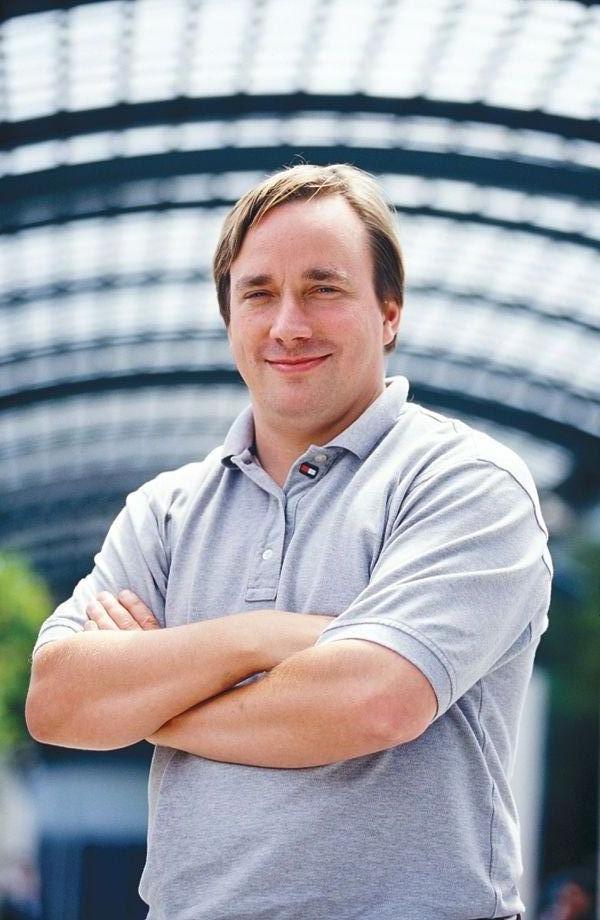
Linus Torvalds was the principal driving force behind the development of the Linux kernel.
Born and bred in Helsinki, the software engineer easily counts as the godfather of European software nerds. His creation of the Linux kernel – whose first prototypes were publicly released as early as 1991 – set a major milestone in the history of software development and eventually made the concept of open source development accessible to the general public. While thousands have contributed to the Linux kernel since then, Torvalds still retains the highest authority to decide which new code is incorporated into the standard Linux kernel. In 2000 he came 17th in Time Magazine’s list of “Most Important People of the Century”. And he is far from being done: Sponsored by the Linux foundation, he still works full-time on improving his “Rebel Code”.
Image: Linus Torvalds, creator of the Linux kernel (Photo: Wikipedia)
Daniel Ek, Spotify (Sweden)
When Daniel Ek started working on Spotify at the age of 23, he was already a self-made multimillionaire and a tech veteran with a ten-year history of innovation and entrepreneurship. As a 14-year-old student in the suburbs of Stockholm, he started off with his first business, programming websites in HTML for customers. After making a few million with the sale of this business with 19, he led, founded and sold a whole string of profitable businesses, including an online auction platform that was eventually sold to Ebay. What came next, wasn’t only the project of his life, but should change the way people around the world listened to music forever. Built on the assumption that people want to rent music instead of buying it, Spotify shook the struggling music industry to its bones and became a herald of the streaming age. Ek has revamped Spotify – again – over the past years and one may be curious, which aces he has still up his sleeve.
Alexander Ljung & Eric Wahlforss, Soundcloud (Sweden|Germany)
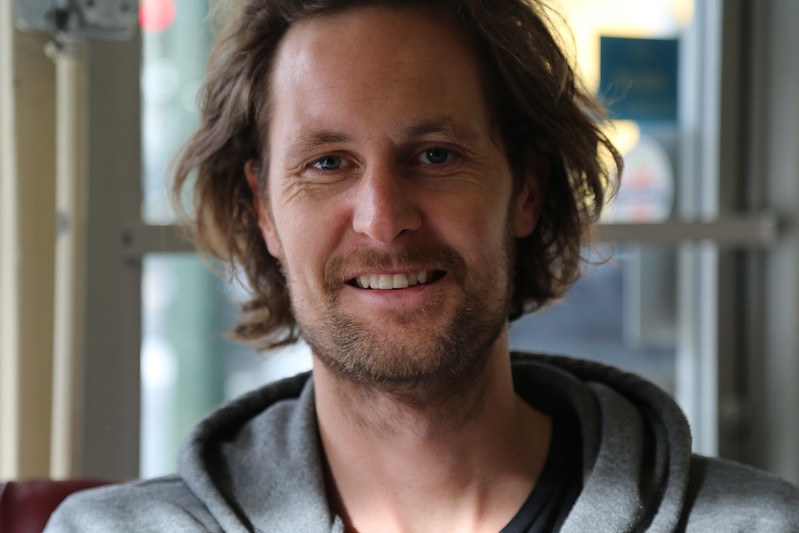
Two nerdy teenage music lovers from Sweden move to Berlin and become founders of one of the most famous tech start-ups in the world – the Soundcloud story could easily the blueprint for the modern startup fairytale. Alexander Ljung and Eric Wahlforss met as students with a shared love for music and some expertise with computers. 2007 they developed a platform, where musicians could easily upload and share their music, cooperate and exchange with other artists, producers, and fans – and it was an instant smash hit with DJs, musicians, and podcasters. In no time, Soundcloud was firmly established among the music platforms and had a reputation as Germany’s coolest startup. Though Soundcloud has been struggling hard in the past two years and its founder duo has been sidelined from the management, Alex and Eric are still highly regarded as paragons of the European start-up scene.
Image: Eric Wahlforss, Co-founder of Soundcloud (Photo: Jyri Engestrom on Flickr)
Ronald Hans & Bas Beerens, WeTransfer (Netherlands)
Ronald Hans, known as “Nalden”, started off as a blogging teenager in a boring Dutch village. Blogging highly successfully – his site nalden.net became profitable after only six months, earning him influence and entrepreneurial stardom at the age of 16. In Amsterdam, he eventually teamed up with Bas Beerens, who was frustrated at not being able to share large files easily – so they started building a nifty tool to solve this simple problem by, marrying file-sharing to blogging. Self-funded from its launch in 2009, WeTransfer reached profitability in 2013. Soon the young Dutch startup found itself successfully competing with giants like Google and DropBox. In August 2019, WeTransfer scored 35 million Euro in a Series B round – the WeTransfer story has just begun.
Sebastian Siemiatkowski, Niklas Adalberth und Victor Jacobsson, Klarna (Sweden)
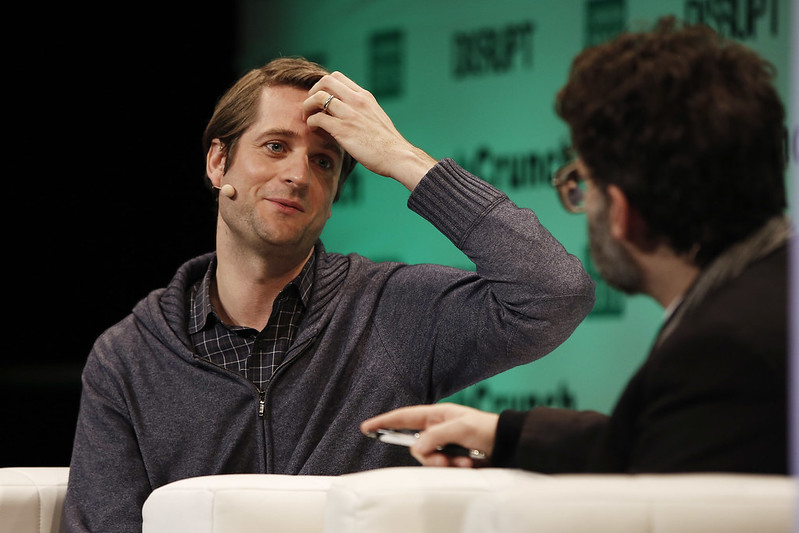
Klarna is the nemesis of traditional banking. The innovative payment provider has been founded in 2005 in Stockholm by Sebastian Siemiatkowski, a son of Polish immigrants together with his college friends Niklas Adalberth and Victor Jacobsson. Their idea to provide consumers and merchants with safer and simpler online shopping payment methods ended in a belly landing at their university’s annual entrepreneurship award competition, but they decided to pursue it anyway. And it was to become Europe’s most valuable FinTech enterprise. Within one decade, the small three-person-startup has evolved to a finance leviathan with 2.500 employees and 60 million customers, catering for 130.000 online businesses in 14 countries. About 40% of all e-commerce sales in Sweden go through Klarna. Next stop: World domination?
Image: Klarna Co-founder and CEO Sebastian Siemiatkowski during TechCrunch Disrupt London 2015 (Photo: TechCrunch on Flickr)
Johannes Reck, GetYourGuide (Switzerland/Germany)
GetYourGuide is Germany’s latest “unicorn” – a startup with a value of more than one billion US$ – and a real phenomenon. It was founded Zurich 2008 by Johannes Reck together with three college friends after a joint trip to China, while they were still studying. Their vision: to help travelers to find and book incredible travel experiences. After having relocated to Berlin, GetYourGuide has become one of the most successful companies in the history of online travel and is providing millions of travelers with incredible experiences, wherever they go. Holidaymakers can book tours in 150 countries and the company is on course to increase ticket sales this year by 75%. In May it raised $484 million from investors, and it’s now valued at more than $1 billion. Highly committed, focused and still down-to-earth, Reck and his co-founders Tao Tao, Martin Sieber, and Tobias Rein are widely regarded as role models in Berlin’s startup scene.
Markus Villig, Bolt (Estonia)
From Estonia comes the European answer to Uber. Based in Tallinn, Bolt is already available in 100 cities across 30 countries and the leading transportation platform in the EMEA region. It was founded in 2013 by Markus Villig at age 19, who dropped out of college after just one-semester studying computer science at the University of Tartu. His vision: to aggregate all taxis in Tallinn and Riga into one platform. He did not remain that modest for long. His service – then called Taxify – was launched in August 2013 and less than a year later it already went on to foreign shores. Like its US rival, Bolt allows people to request a taxi or private driver with their smartphone, but it also brokers electric scooters and food delivery services. Today, 25 million customers and 500,000 drivers are using its service and Markus Villig is considered the youngest founder of a billion-dollar company in Europe.
Mette Lykke, Too Good To Go (Denmark)
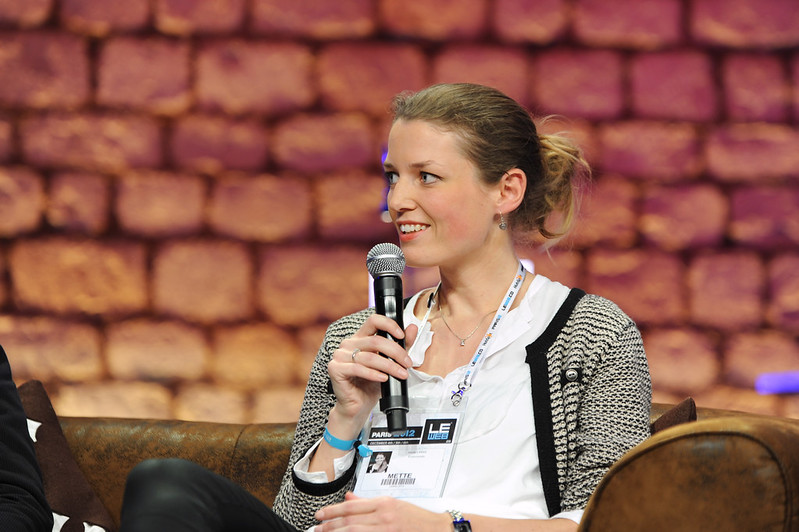
One-third of the food we produce is wasted – a huge global issue with the environment suffering the consequences on both ends. The Copenhagen-based startup Too Good To Go is dedicated to fighting food waste by connecting consumers with stores, bakeries, and restaurants to sell food they haven’t sold that day. One-click of a button and the food is saved. The company is led by CEO Mette Lykke, who formerly co-founded Endomondo, a social fitness community that has grown to more than 30 million users across the world. Having developed her app for almost a decade, the 38-year-old from the Danish provincial town of Ringkøbing has demonstrated tremendous staying power before selling her business to a U.S. athleticwear brand for $85 million. Too Good To Go attracted her attention around 9 months after its launch and she was immediately convinced by the app’s concept.
Under her leadership and with a fast-growing team, To Good To Go expanded to 12 countries so far, raised a total of €16 million, and is on its way to save 20 million meals per year.
Mette Lykke in 2012 (Photo: Francois/LeWeb12 Conference, Paris on Flickr)
Ivar Emilsson, Oddur Magnússon & Mundi Vondi, Klang Games (Iceland/Germany)
Klang is an independent game studio, which is developing immersive new gameplay. Why it’s so innovative: Klang is developing a unique MMO open-world game called “Seed”, which looks set to revolutionize the gaming space with player’s actions continuing to impact the world long after they have logged off. The game is backed up by a whole product line of interesting media additives, for example, the life cycle podcast, in which leading scientists elaborate on the future of humanity. Klang Games has been founded in 2013 in Iceland by game developers Ívar Emilsson, Oddur Magnússon, and Mundi Vondi, who previously worked on EVE Online, the massively multiplayer “space opera” that is now one of the world’s longest-running MMOs. Klang’s first game “ReRunners” was to be just a stepping stone to a far wider-reaching, and far deeper, MMO experience. What started off as an unusual idea is now a very successful studio with around 50 employees based in Berlin and has recently secured more than 35 Million € in funding.
Poppy Gustafsson & Nicole Eagan, Darktrace (UK)
In the world of artificial intelligence (AI), UK-based cybersecurity start-up Darktrace is one of the most exciting companies in the space. Launched in Cambridge in 2013 by a mixture of mathematicians, former intelligence agents and specialists from the tech industry, it has quickly risen to the top of the UK tech scene and already achieved a unicorn valuation. The company is led by CEOs Poppy Gustafsson and Nicole Eagan, whose leadership is regarded as being key to the company’s growth. Darktrace offers artificial intelligence-led cybersecurity. The unique idea: Instead of doing cybersecurity like a medieval fortress by erecting a big wall to keep people out, it’s better to do it like espionage — track people who break in to find out what they’re after, who they are, and how they got in. Darktrace uses artificial intelligence (AI) and machine learning to scan and identify security weaknesses and malicious traffic inside a company’s network. Its technology has been deployed more than 9,000 times across 5 continents so far. Darktrace delivers defensive ‘cyber AI’ to over 3,000 organizations and employs over 900 people worldwide.
Kriti Sharma, Sage (UK)
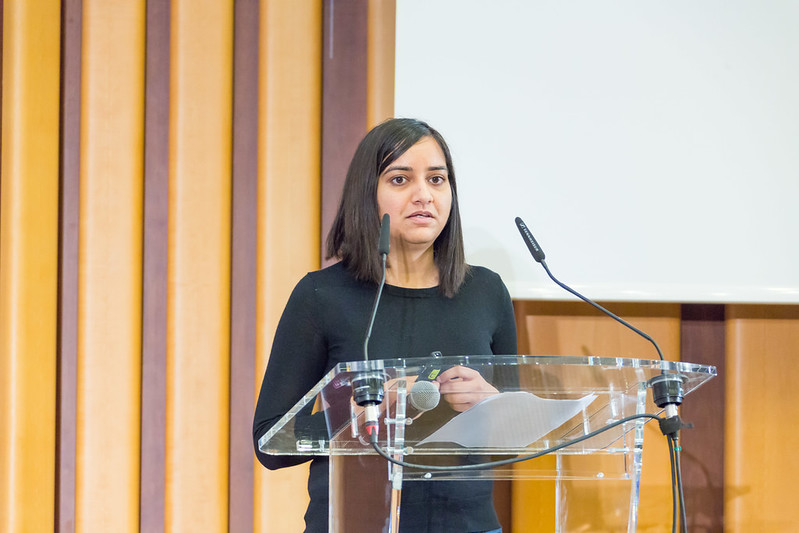
Kriti Sharma, born 1988 in Rajasthan, India, built her first robot at the age of 15 – designed to bring chocolates to its controller. With a Master in Advanced Computer Science from the University of St Andrews in her pocket, she became an artificial intelligence technologist, business executive and humanitarian and made it straight into Forbes magazine’s “30 Under 30″. As Vice President of artificial intelligence and ethics at Sage Group, one of the UK’s largest tech companies, she is leading efforts to create more diverse and ethical artificial intelligence and “embracing botnets” – which means that artificial intelligence does not have to pretend to be human, instead it needs to be useful. Sage has developed a range of chatbots for business finances, designed for helping business builders to do less admin and more of what they love. Besides, Kriti applies her AI and tech expertise to solve global issues from productivity to education to domestic violence and was also appointed as United Nations Young Leader for the Sustainable Development Goals in 2018. And she just got started.
Image: Kriti Sharma, VP of Artificial Intelligence, Sage, at the AI for Good Global Summit 2018 (Photo: ITU Pictures on Flickr)
Hjalmar Nilsonne, Watty (Sweden)
Hjalmar Nilsonne, then an Industrial Engineering student at the Royal Institute of Technology in Stockholm, believed that the transition to sustainable use and production of energy will be the biggest challenge for our society in the coming decades. So in 2013, he founded Watty together with fellow engineering students and developed a gadget to eliminate unnecessary energy use in all the world’s homes and buildings. “The Watty” is a small device that connects to a fusebox and monitors household electricity use. Its companion smartphone app uses algorithms to detect and identify appliances in the home based on energy usage patterns. This information can then be used to save money on bills and cut down on carbon emissions. Its innovation combines multiple tech disciplines, such as AI, hardware, IoT, SaaS. In 2014 the company won Niklas Zennström’s Green Mentorship Award and in 2015, it was selected as ‘Sweden’s next unicorns’ at Daniel Ek’s and Ash Pournouri’s Symposium event. Today Watty has become a market leader in disaggregation technology and several big European utilities are currently working with the company on large- scale deployments.
Felix Van de Maele, Collibra (Belgium)
Data intelligence company Collibra is one of the less well-known European unicorns, but one of the fastest-growing. Born and educated in Belgium, CEO and Co-Founder Felix van de Maele was inspired to create Collibra at the age of 23, after learning about Silicon Valley startups during his studies in business and computer science from Vlerick Business School and Vrije Universiteit Brussel. Without any prior formal experience, he started the company in an old 20-square meter office and built the company from the ground up. Quite literally building office furniture from IKEA and deciding job roles with his fellow founders over pizza, he has led Collibra from idea to more than nine years of record growth and industry leadership. Today his product is the data nervous system of many large companies, breaking down silos, and making it easy to access, trust and understand organisational data. Collibra is the data governance solution of choice for global Fortune 500 companies spanning industries such as financial services, healthcare, manufacturing and more and has over 450 employees in offices across Brussels, New York, London, Paris, Toronto, and Wroclaw, Poland.
Thomas Rebaud, Meero (France)
Thomas Rebaud has been a serial entrepreneur from a young age, having founded already two companies before launching Meero as a digital platform for photographers in 2016 at the age of 28. At that time, he was driven by the idea to improve the lives of artists by allowing them to fully devote themselves to their passions of art and creation. He joined Meero, which had already existed as a traditional marketplace for photographers as co-founder and CEO and turned their model into a full-stack photography platform taking care of most steps of production from photo shooting booking to retouching. Under his leadership, Meero became the managed marketplace it is today and eventually the world’s leading on-demand photography platform. Meero not only connects photographers with clients but also assists with photoshoot production, from pre-production to AI-automated editing. Its platform uses artificial intelligence to make photography postproduction far quicker than manual editing, leading to quicker delivery times and more consistent results. With $230 million raised its latest round of financing was one of the largest ever in France.
Marnus Flatz, Castl (Austria | Switzerland)

Marnus Flatz is the founder and CEO of the next-gen social media app Castl. The Austrian has lead a quite interesting life so far: At the age of 17, he dropped out of high school to walk through Africa alone and on foot. Five years later, he founded his first software company, which was the first to develop a fully automated radio and music software – one year before iTunes was introduced. After a successful exit, his next enterprises included one of the first digital multimedia services for in-store infotainment, an AI-based Multimedia Streaming Service, a rock star career under his stage name Aaron Roterfeld, and last but not least the launch of a real gamechanger: The Switzerland-based Castl app, which entered the beta phase in 2018 and has already gained massively committed followership. The innovative social network is basically a mix of giving “Likes” a real value, fostering its users’ creativity, supporting good causes and pure rampant fun. “Castl” is only available in German-speaking countries so far and rumored to be released internationally this year. Already considered a potential unicorn, the Swiss “rebel app” is definitely a future force to reckon with.
Image: Castl Founder and CEO Marnus Flatz (Photo: Wikipedia)
